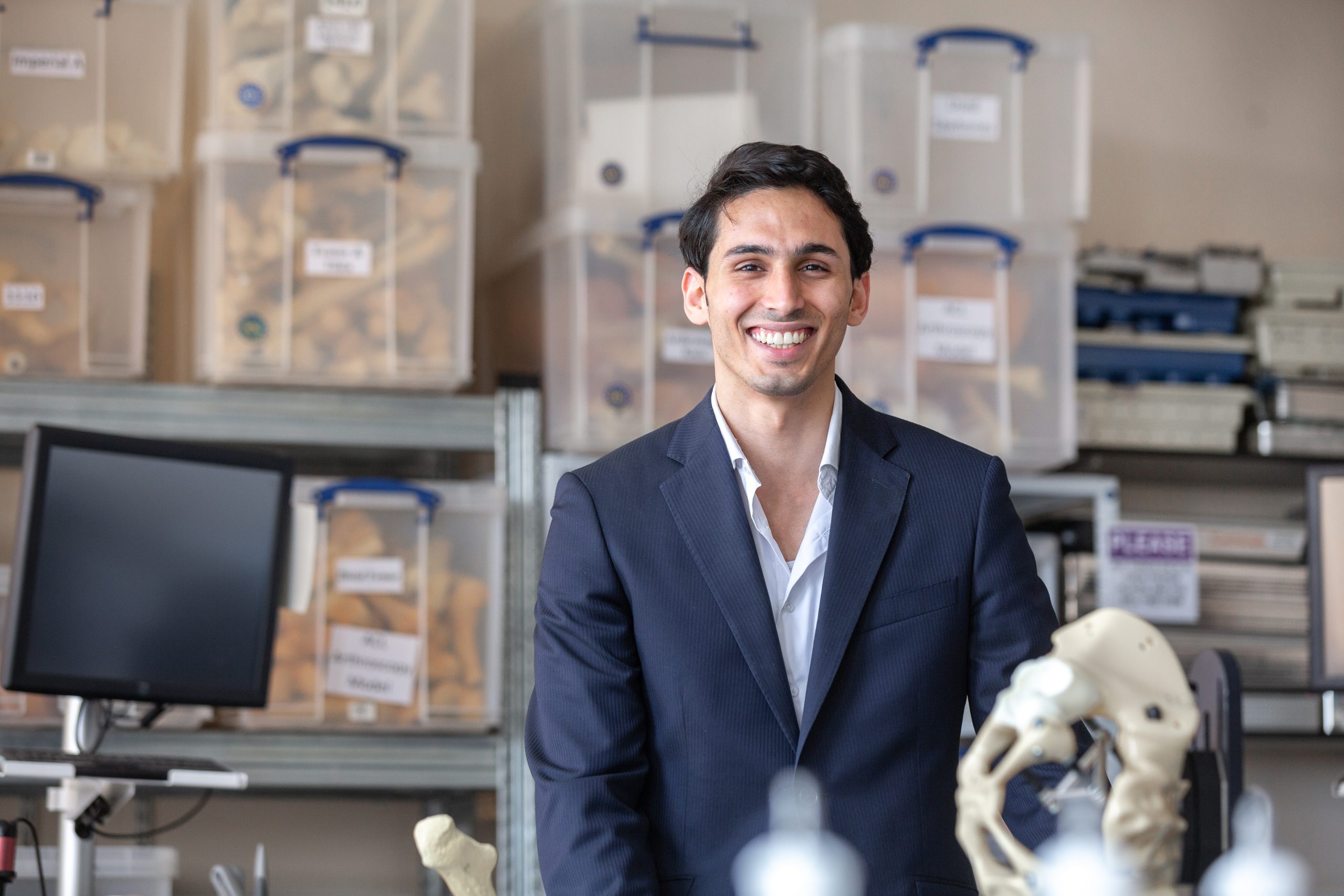
Dr Hadi Alagha from the Department of Surgery and Cancer shares his inspiring journey of becoming an orthopaedic surgeon. Learn about his remarkable path from Aleppo to Imperial College London and the hurdles he encountered along the way.
My path has been anything but ordinary, shaped by a deep desire to make a difference.
My story starts in Syria, a home that I have not returned to since I left in 2012. At that time, I had successfully completed three years of undergraduate medicine at the University of Aleppo. Like many others, due to the war I had to leave behind my family, friends and memories. This experience ignited a fire in me to pursue my dream of becoming an academic orthopaedic surgeon.
After some searching, I found my way to the University of Debrecen in Hungary, where I joined as a third-year medical student. It was here that I discovered my passion for scientific research, leading me to complete a Master’s in Sports and Exercise Medicine at the University of Nottingham with distinction in 2016. By the time I graduated from medical school in 2018 summa cum laude, I ranked second among my peers, a proud moment that set the stage for my future.
Transforming hip replacement outcomes with machine learning
I chose to pursue my PhD at Imperial under the supervision of Professor Justin Cobb because of his pioneering work in introducing innovative technologies to the field of arthroplasty – surgery to restore the function of a joint. I hold Professor Cobb in high esteem as both a valued confidant and mentor, whose insights and support have greatly enriched my academic journey. I joined the PhD programme in Clinical Medicine Research at the MSK Lab in October 2018, and my journey was a thrilling ride. My doctoral thesis, titled “Predictive factors and outcomes in primary hip arthroplasty,” focused on developing and validating machine learning (ML) models to predict patient outcomes after hip replacement surgery.
Clinical practice and implant selection for hip disease requiring replacement often exhibit significant variability, making it difficult to predict outcomes. Differences among patients, surgeons, and units can obscure the effectiveness of certain approaches. Machine learning provides a powerful complement to traditional statistical methods, such as multivariate regression models, by handling large numbers of predictor variables and their complex interactions. This allows for more accurate forecasting of clinical outcomes.